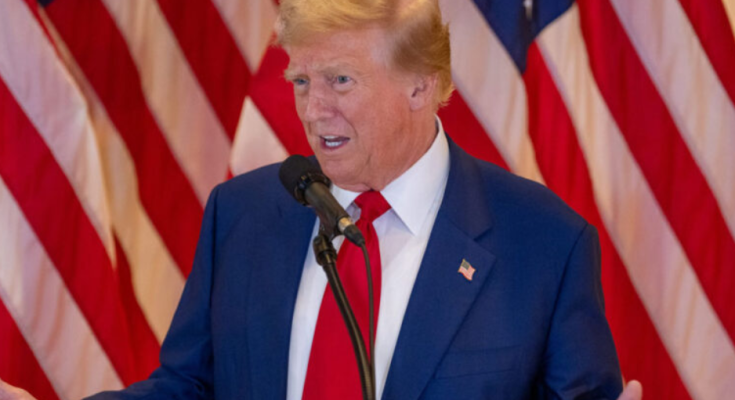From the beginning, Donald Trump has promised to create “the largest mass deportation program in history,” and he plans to get started on his first day in the office.
Although the president-elect has shared limited details about his plan, he’s suggested there would be an “ideological screening” for those wishing to enter the country, an end to birth-right citizenship, and some first-term policies such as “Remain in Mexico” would be reinstated.
Part of his reason for severely limiting immigration into the United States is the belief that illegals immigrants are responsible for a significant amount of violent crime in the country.
While calling immigrants who are in the country illegally “animals” and saying they are “poisoning the blood of our country,” he has helped spread the fear that American citizens are being killed by violent criminals. By spreading these narratives, Trump has fueled public fear that undocumented immigrants pose a threat to American lives.
However, evidence paints a different picture. According to a survey from the National Institute of Justice, undocumented immigrants were “arrested at less than half the rate of native-born US citizens for violent and drug crimes and a quarter the rate of native-born citizens for property crimes.”
The study examined data from the Texas Department of Public Safety. Texas shares the longest border with Mexico at 1,254 miles.
President-elect Trump’s plan does not come without staggering financial and economic costs. An American Immigration Council study found that such a deportation effort would cost at least $315 billion.
Who will bear that financial burden?
Moreover, deporting 13.3 million immigrants would have significant consequences for the U.S. economy. According to the same study, 89% of undocumented immigrants are of working age compared to 61% of U.S.-born citizens. Of the population, in 2022, three quarters participated in the workforce.
If millions of these individuals were suddenly deported, industries reliant on their labor — including construction and agriculture, where undocumented workers make up more than 10% of the workforce — would face severe disruption.
Could Trump change his mind on immigration before taking office in January? Theoretically, yes. Although, it is highly unlikely considering his past speaks for itself.
It is worth remembering that the United States, unless one is of Native American descent, is a nation built by immigrants. For generations, people have come to the United States for a chance at a better life, the very same hope that drives the immigrants of today. We should be welcoming immigrants instead of threatening to deport them.



